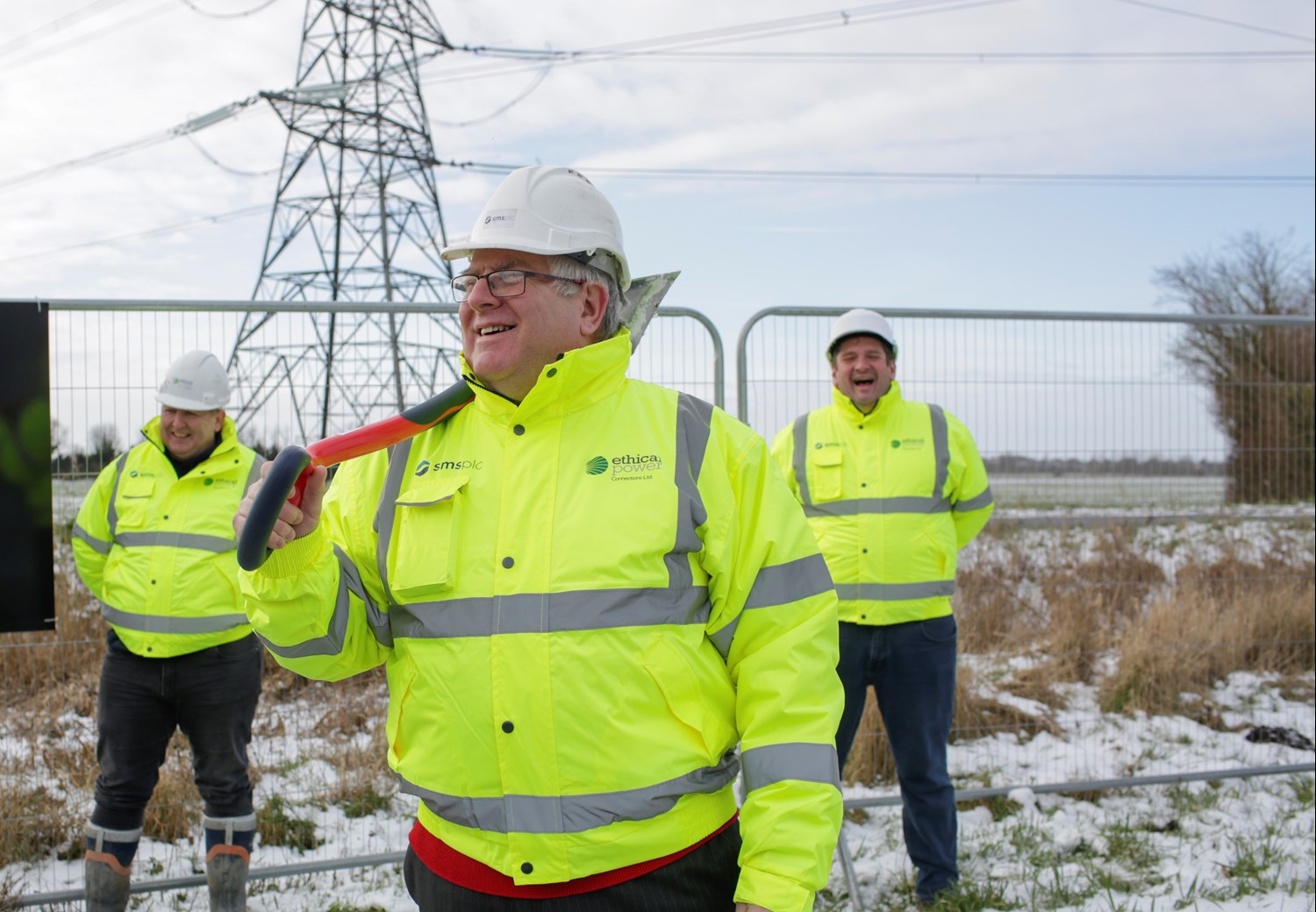As you may have seen in recent news, SMS has announced its arrival in the grid-scale energy storage market, with construction underway on a 50MW battery development in Burwell, Cambridgeshire.
This is followed up by a further 40MW of capacity we are developing in Barnsley, South Yorkshire, the build of which has now also begun.
The combined 90MW of projects is just the beginning for us in the UK’s fast emerging energy storage sector. Over the next two years alone, we’ve targeted a 710MW pipeline of utility-scale battery storage, with even greater ambitions beyond that as we look to become a leading player in this rapidly growing space.
Battery storage: an essential technology for the renewable energy transition
A quick look at the sector – and the ever-increasing pipeline of large battery projects around the country – demonstrates the strategic importance of the technology in helping the UK energy system transition to a low-carbon future powered by renewable generation. According to latest figures published by RenewableUK in February 2021, there is now more than 16GW of battery storage capacity either already operating (1.1GW), under construction or in the planning stage spread across 729 UK projects. This accounts for a 5.5GW rise in the pipeline in little over a year.
If there was any ever doubt, this exceptional growth highlights the increasing case for battery storage and the benefits delivered to the grid. Like all of these planned projects steadily coming online, when operational our batteries in Burwell and Barnsley will play an important role in improving the adoption of cleaner renewables across the UK, reduce reliance on fossil fuels, and help bolster system resilience and flexibility as we come to rely on more intermittent forms of generation.
We’ll achieve this by delivering a range of balancing and ancillary services to the National Grid; services which will be increasingly essential as we move to greater renewable energy sources and the electrification of our heating and transport systems which will place more demand than ever before on our electricity system.
Through facilitating much higher levels of lower-cost solar and wind generation, and helping avoid the need for future costly investments to reinforce grid capacity, battery storage will not only help reduce the UK’s carbon emissions, but also contribute to a more affordable energy system for consumers.

So why has SMS entered the energy storage market?
As our Chief Operating Officer, Tim Mortlock, explained when announcing our new projects: “The benefits realised by battery storage are central pillars of the Government’s net-zero 2050 target, and our business strategy is to deliver the network of low-carbon assets needed to reach that goal as soon as possible.”
Indeed, efforts to deliver a modernised, cleaner, and smarter energy system for Britain are nothing new for SMS. Our entry in the battery storage market is built on decades of expertise already dedicated to developing Britain’s low-carbon energy infrastructure. This not only includes our continued national rollout of smart meters, but also ongoing projects to establish smart energy systems across a range of distributed generation, behind-the-meter battery storage, heat and electric vehicle charging solutions. Not least, the pioneering, UK Government-backed ReFLEX Orkney project on which we are lead partners.
Adding this to the years of grid-level connections and distribution network operator (DNO) expertise SMS has through our dedicated utility infrastructure team, our venture into the grid-scale battery market is an organic next step to complement our business strategy of delivering the UK’s net-zero targets.




